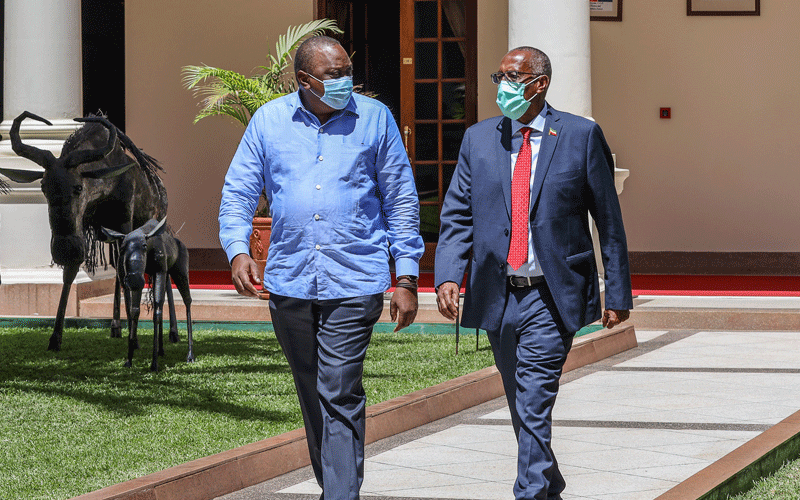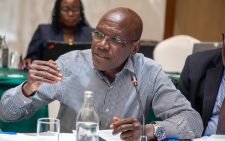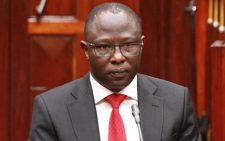Somalia severs diplomatic ties with Nairobi

Emeka-Mayaka Gekara
Kenya’s troubled relationship with Somalia hit lock bottom after Mogadishu cut diplomatic relations with Nairobi accusing it of interfering with its internal affairs.
In the unusual decision announced late at night, Somalia Information minister Osman Abukar Dubbe said it was a response to what he described as “recent political violations and constant, blatant interference by Kenya against Somalia’s sovereignty”.
Dubbe said Somalia had taken the decision to pull its diplomats out of Nairobi and instructed their Kenyan counterparts to leave Mogadishu within seven days.
On November 29, Somalia recalled its ambassador to Nairobi and instructed Kenya’s ambassador to leave Mogadishu for consultations with his government.
“Somalia inevitably decides to sever its diplomatic relations with Kenya as a result of constant interference with the internal and political affairs of Somalia,” said the Somalia ministry of Foreign Affairs.
“This is in violation of the Africa Union Constitutive Act and is an affront on the peaceful co-existence of African nations,” said Mogadishu.
Somalia appeared to be angered by the decision by President Uhuru Kenyatta to host Somaliland President Muse Bihi Abdi in Nairobi for bilateral talks.
The region has declared independence from Somalia despite resistance by President Mohammed Abdullahi Farmajo for a unitary federal republic.
Somalia has also been uncomfortable with Kenya’s relationship with Jubaland leader Ahmed Madobe, a former warlord, who was re-elected as president of the state in August 2019 in an election boycotted by the federal government.
The Jubaland crisis strained ties between Kenya, which backed Madobe, and Somalia, which has long accused Nairobi of meddling in its affairs.
Those tensions escalated in March, when heavy fighting broke out near the Kenya border between Somali troops and Jubaland forces. Kenya accused Somali troops of violating its territorial integrity.
Kenya and Somalia have a military cooperation pact which saw Nairobi send troops to the country under the African Union Mission in Somalia (Amisom). It will be interesting to see how the cutting of diplomatic links will affect the deal.
Yesterday, Uhuru and Bihi signed a bilateral deal which, they said, will strengthen diplomatic relations between the two countries.
Under the deal, the two announced that Kenya will open a consulate in Hargeisa by the end of March, 2021. In return, Somaliland would upgrade its liaison office in Nairobi within the same timeframe.
Kenya Airways and other Kenyan airlines will start direct flights between Nairobi and Hargeisa by end of March, 2021.
Moreover, senior Somaliland officials on a pre-determined list and travelling to Kenya to apply for e-visa and receive visa on arrival by end of March, 2021.
The two leaders also asked officials from Kenya and Somaliland to agree on details and timelines for enhancing technical cooperation, including implementation of exchange programmes involving students, agricultural officers, doctors and nurses.
“The Presidents affirmed that leaders have a responsibility to secure peace and stability in the region, to enable the people to pursue social economic development and stability.
In this regard, the two leaders acknowledged Somaliland has over the years remained peaceful and stable, owing to commitment to democratic ideals and the establishment of strong governance institutions,” said State House in a statement.
With the cutting of diplomatic ties, it means the Kenyan embassy in Mogadishu and Somalia’s mission in Nairobi will be shut and their officials sent home.
But both countries, based on the Vienna Convention on Consular Relations, will remain obligated to offer visa and other travel and immigration services to nationals of each other.
According to Dr Oscar Otele, who teaches political science at the University Nairobi, Kenya is unlikely to take a drastic response because of the two countries’ historical bond, a huge Somali population in Kenya-including refugees- but the Mogadishu move might end up emboldening the Al-Shabaab militants, which Kenyan troops have been fighting since 2010.
“It will certainly destabilise relations but provide incentives to Al-Shabaab with any slight altercation. Kenyan nationals there are protected by the Vienna Convention but one would expect the government to repatriate them if the relationship deteriorates,” said Otele.
Under international law, each country will remain obligated to protect premises owned by either side on their host territories.
The decision came barely a week after Mogadishu expelled the Kenyan ambassador to Somalia Lucas Tumbo, and recalled theirs to Nairobi, Mohamud Ahmed Tarzan, following a similar complaint of interference.
Somalia had also submitted a complaint to the regional bloc, the Intergovernmental Authority on Development (IGAD), to include the spat with Kenya during the upcoming virtual summit on December 20 on Tigray.










